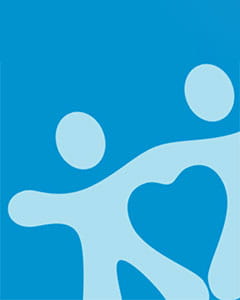Let's give children's teeth a biting chance!
Written by Ha Vo, pediatric resident at Arnold Palmer Hospital for Children
My name is Dr. Vo, and I'm a pediatric resident at Arnold Palmer Hospital for Children. I’d like to talk to you about oral health, a subject that I am very passionate about. I have been to countless dentist visits, been through a lot of procedures, and paid way more money than I have ever wanted to get rid of my cavities. I wanted to share some information with you about starting early with good oral health to save you and your kids all the agony that I had to go through.
Dental caries is the most common chronic disease of childhood. It is 5 times more common than asthma and 7 times more common than hay fever. Now here is the kicker. More than 40 percent of children have tooth decay by the time they reach kindergarten! This is exactly why we need to start good oral care early on in life. Children with cavities in their baby teeth are at much greater risk for cavities in their adult teeth. So let’s get started!
Who needs teeth to start brushing? That's right! You can start when they are just little babies. No teeth? No problem. Start with a clean, damp washcloth and gently wipe off any milk that has settled on baby's gums and tongue. This decreases the risk of bacteria holding on to their teeth when their teeth start coming in.
No sharing! I know it sounds mean because we were always taught to share but believe me, in this case, sharing isn’t a good thing. All those times that you wanted to make sure that your baby's food was not scorching hot or were curious about how the mushed up beets tasted so you took a taste from your baby's spoon and then put it right into your baby's mouth. Stop right there! Put the spoon down and walk away from the spoon. Sharing utensils actually transfers bacteria from your mouth to your baby's mouth, bacteria that causes cavities. Still want to share?
Bottle propping, a big no-no. Putting your baby to bed with a bottle can cause serious dental cavities called “Early Childhood Caries.” This used to be known as “baby bottle tooth decay." It is MUCH easier never to start this bad habit than it is to stop it when the baby's teeth start coming in. Baby to bed with a bottle leads to pooling of the formula in the mouth and a party invitation for bacteria. If you do put your baby to bed with a bottle, make sure it is only water and not a sugary drink such as formula, juices, or milk. No bacteria invited to this party.
When to start seeing a pediatric dentist? Your child should be seen by a pediatric dentist by their first birthday or within 6 months of their first tooth.
Fluoride is our friend. It protects teeth from acid damage and ultimately cavities. Most public water systems have fluoride in it. This was recognized by the Centers for Disease Control and Prevention (CDC) as one of the 10 greatest public health achievements in the 20th century. Fluoride can be found in tap water (depending on where you live), some processed foods and drinks, and toothpaste. But beware- fluoride is usually not in bottled water. If your local water supply does not have fluoride in it, your family only consumes bottled water, or your baby is too young for toothpaste, starting at 6 months of age you can ask your pediatrician about fluoride drops or fluoride varnishes that can be applied right to your baby's teeth.
Brush and spit, but resist the urge to rinse! As soon as the first tooth comes in, you can apply just a smear (about the size of a grain of rice) of toothpaste to your baby’s tooth. Use sparingly because at that age they won’t know to spit out the toothpaste. When your child turns 3 years old, they can begin to use a pea-sized amount of toothpaste to brush twice a day. Once the toothpaste is spit out, resist the urge to rinse with water! I know it will be hard but believe me, just read the instructions on the back of your toothpaste. Does it say to rinse with water? I think not. Toothpaste works on the surface of teeth. If you rinse it, then you will be rinsing away all of the magic. So please, resist the urge.
I hope this information helps and motivates you to start early with oral health. Your kids and your wallet will thank you in the long run. Smiles!







